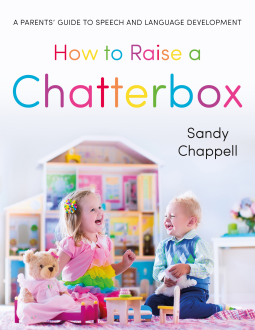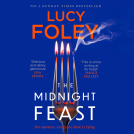
How to Raise a Chatterbox
A Parents’ Guide to Speech and Language Development
by Sandy Chappell
This title was previously available on NetGalley and is now archived.
Send NetGalley books directly to your Kindle or Kindle app
1
To read on a Kindle or Kindle app, please add kindle@netgalley.com as an approved email address to receive files in your Amazon account. Click here for step-by-step instructions.
2
Also find your Kindle email address within your Amazon account, and enter it here.
Pub Date 28 Nov 2021 | Archive Date 28 Dec 2021
Talking about this book? Use #HowtoRaiseaChatterbox #NetGalley. More hashtag tips!
Description
We typically think of a ‘chatterbox’ as someone who talks a lot but Sandy Chappell prefers ‘a person who likes to chat’. Isn’t that what we all want for our children? A love of language and talking? How to Raise a Chatterbox guides parents through the stages of speech and language development from age 0-5, providing information, strategies, and tips that will help children to learn to talk more easily and more confidently. The book discusses the reasons behind the advice and the research studies that support it so that parents can make an informed decision about which advice they choose to follow.
The book includes hundreds of suggestions for games and activities. Parents don’t need to make any more time in their day; they can simply adapt daily activities such as getting dressed, eating meals, travelling in the car etc. Sandy has also included lots of games and activities that they can do with their child to give them an extra boost, if they have the time. Parents don’t need to buy any special materials; she gives suggestions of how household objects and simple toys can be used to make great speech and language activities.
A child’s speech and language skills may be developing as parents would expect but they simply want them to be the best they can be before they start school; or parents may feel they are behind in certain areas and would like specific guidance to help them to catch up. This book is for all parents, grandparents and carers of pre-school children who want to make the most of those precious pre-school years that fly by, and that we now know give us the best opportunity to 'Raise a Chatterbox'.
A Note From the Publisher
Available Editions
| EDITION | Ebook |
| ISBN | 9781803138190 |
| PRICE | US$9.99 (USD) |
| PAGES | 200 |
Featured Reviews
 Adie H, Reviewer
Adie H, Reviewer
This was an interesting read. I currently have an 18-month-old who is learning more and more words every day, so I wanted to read this in order to pick up some tips for encouraging his love of language. It's a mixed bag in terms of its usefulness if you're a parent with any common sense; a lot of the tips in the book revolve around paying attention to your child, talking to them, listening to them, and responding to them, which seems incredibly obvious to me. I also think that the parents who need to be told to read books or have conversations with their children are probably not the parents who would pick up a book like this, so there's an element of preaching to the choir. It can be repetitive at times (for example, it tells you so many times that a child needs to hear a word 500 times in context before learning it) and occasionally melodramatic (I had to laugh at the dramatic imagining of the life of a child who struggled with words, ending up in crime and misery).
That being said, there are nuggets of interest in here: I appreciated some of the insight into HOW a child learns - for example, I didn't know that putting a key word at the end of the sentence makes it easier to understand (so if you want your child to learn to say "dog", say "look at that dog", not "there's a dog over there"). There are plenty of practical small suggestions for ways to encourage speech, some of which are bound to be new to each reader (like pausing before you hand something over so that they need to ask for it). Again, a lot of this you will hopefully already be doing naturally, but I suppose that's quite reassuring if so! There's also some interesting tangents about attention spans and personality that I enjoyed more than the actual speech part of the book.
An interesting read overall, and I learned some things I'll be putting into practice.
This is a very well planned and executed book, a book that will benefit any parent who invests, digests and follows through on the contents!
For any parents looking to do their best for their child's all important language skills, this books gives information on what is typical at each stage of development, and vitally, what they can do i to support their young child's language skills. It is a book that can accompany a child through their early years, being dipped in and out of as the child matures.
The practical activities are just lovely, the fact they support language development is a bonus!
I wouldn't hesitate to recommend this to new and experienced parents, or as a gift to prospective parents.
My thanks to Netgalley, author and publisher for the opportunity to review this book in exchange for an honest review.
Readers who liked this book also liked:
Jennifer Newens
Cooking, Food & Wine, Crafts & Hobbies, Nonfiction (Adult)


















